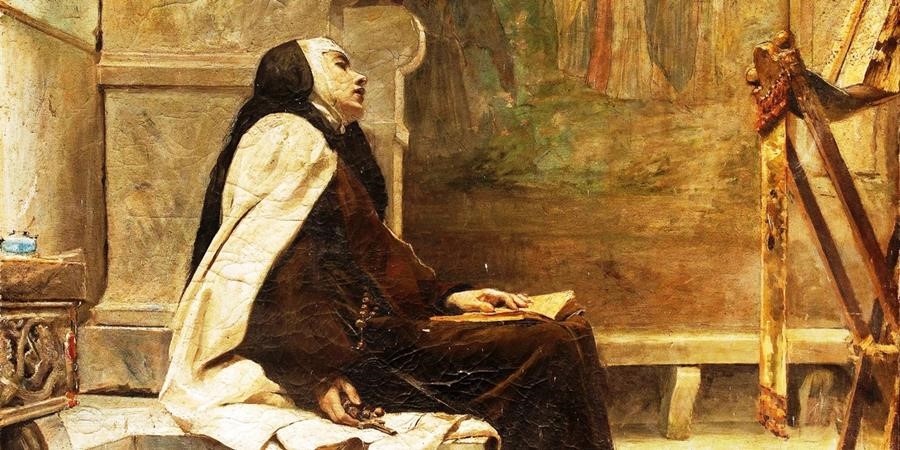Richard Rohr's Daily Meditation
From the Center for Action and Contemplation
Week Eleven

Disciples, Prophets, and Mystics
Inner Experience
Wednesday, March 18, 2020
While most Christians consider themselves disciples of Jesus and try to follow his teachings, a much smaller number move toward practical acts of service or solidarity. But I’m afraid even fewer Christians have the courage to go on the much deeper mystical path. Both Catholics and Protestants have failed our people by mystifying the very notion of mysticism. The word itself has become relegated to a “misty” and distant realm that implies it is only available to very few and something not to be trusted, much less attractive or desirable. For me, the word “mysticism” simply means experiential knowledge of spiritual things, as opposed to book knowledge, secondhand knowledge, or even church knowledge.
Most of organized religion, without meaning to, has actually discouraged us from taking the mystical path by telling us almost exclusively to trust outer authority—in the form of Scripture, tradition, or various kinds of experts—instead of telling us the value and importance of inner experience. (I call that trusting the “containers” instead of the “contents.”) In fact, most of us were strongly warned against ever trusting ourselves, told that our personal experiences of the divine were unnecessary and possibly even dangerous.
Discouraging or denying people’s actual experiences of God often created passive people and, more sadly, a lot of people who concluded that there was no God to be experienced! We were taught to mistrust our own souls—and thus the Holy Spirit within us. We can contrast that with Jesus’ common phrase, “Go in peace, your faith has made you whole!” (as in Mark 5:34 and Luke 17:19). He said this to people who had made no dogmatic affirmations, did not think he was “God,” did not pass any moral checklist, and often did not belong to the “correct” group. They were simply people who trustfully affirmed, with open hearts, the grace of their own hungry experience—in that moment—and that God could care about it.
The irony in all of these attempts to over-rely on externals is that people end up relying upon their own experience anyway! Most of us—by necessity—see everything, mystical and otherwise, through the lens of our own temperament, early conditioning, brain function, role and place in society, education, our personal needs, and cultural biases and assumptions. Admittedly, personal experiences are easy to misinterpret, and we shouldn’t universalize from our “moment” to an expectation that everybody must have the same kind of “moment.” We also can’t assume that any experience is 100 percent from God. We must develop filters to clear away our own agenda and ego. Nothing beats a solid understanding of some theology, psychology, and sociology, along with good and wise counsel. We cannot forget Paul’s reminder which was meant to keep us humble: “We know imperfectly and we prophesy imperfectly” (1 Corinthians 13:9).
Gateway to Action & Contemplation:
What word or phrase resonates with or challenges me? What sensations do I notice in my body? What is mine to do?
Prayer for Our Community:
O Great Love, thank you for living and loving in us and through us. May all that we do flow from our deep connection with you and all beings. Help us become a community that vulnerably shares each other’s burdens and the weight of glory. Listen to our hearts’ longings for the healing of our world. [Please add your own intentions.] . . . Knowing you are hearing us better than we are speaking, we offer these prayers in all the holy names of God, amen.
Listen to Fr. Richard read the prayer.
Story from Our Community:
I was raised to think of Jesus as primarily a social activist standing up to systems of oppression and power imbalance. While this formed my political worldview, my spiritual worldview was unconnected. Through Richard’s meditations I’ve begun the process of reconnecting a spirituality that includes both my social activism and an engagement with my own inner life. Affirming both/and has been the most powerful teaching for me, helping me to accept paradox, diversity of experience, and affirm my own inner goodness. –Andy L.
